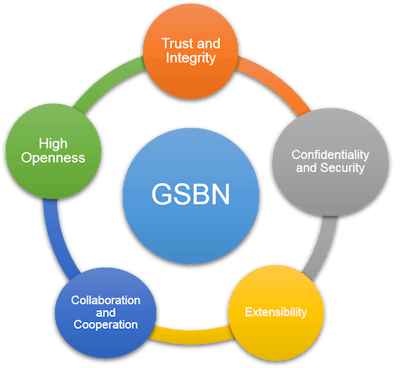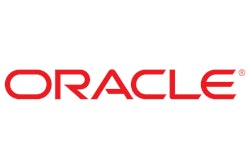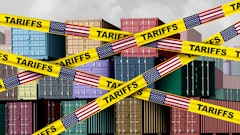
Ocean shipping has been steadily growing in recent years. Ocean container carriers have been through major consolidation, vessel operators have been tightly controlling the amount of vessel capacity, and the global economy has been strong.
This doesn’t take into account the increased risk and added uncertainty from geopolitical factors like trade wars and conflict. Those issues are compounded by additional cost pressures, such as the International Maritime Organization’s (IMO’s) low-sulfur fuel mandate that comes into effect January 1, 2020. The mandate is sure to impact the predictability of far-flung supply chains and shipping rates for customers as well as pressure industry profits.
Key to navigating these challenges is better visibility and real-time access to information for shippers, ocean carriers, terminal operators and other parties involved with shipping ocean freight. To be able to better plan, gain efficiencies that reduce costs, and reduce the risk of disruptions, they need deeper insight into the shipment cycle and real-time access to a variety of information across the extended inland and maritime transport ecosystems.
That’s a challenge given the sheer number of participants in a single shipment. The exchange of all the required documentation and logistics information is a constant source of significant friction—often leading to delays, disputes, and significant extra costs for shippers and carriers.
But things are changing. Oracle has collaborated with a pioneer in this space, CargoSmart, which recently announced a significant milestone in forming the Global Shipping Business Network (GSBN) blockchain consortium.
Nine leading ocean carriers and terminal operators have signed a service agreement with CargoSmart to commit resources to establish a not-for-profit joint venture to accelerate the digital transformation of the shipping industry. The signatories include CMA CGM, COSCO SHIPPING Lines, COSCO Shipping Ports, Hapag Lloyd, OOCL, Hutchison Ports, PSA International, Port of Qingdao, and Shanghai International Port.
A Unified Shipping Information Platform
Achieving a single source of truth for trusted, real-time sharing of information amongst these parties and any others that join is no small task. But it is one that is being made easier through the use of distributed ledger technology. To bring such a solution to life for the consortium, collaboration between innovative global shipping and logistics solutions provider, CargoSmart, and enterprise cloud company, Oracle, was critical.
“Together, CargoSmart and Oracle have been working on this effort for almost a year. From the outset, the foundation of this approach has been a decentralized, multi-party, fully managed enterprise-grade blockchain network that enables trust, while maintaining confidentiality of the commercial relationships as required by shipping industry regulations,” said Oracle’s Frank Xiong, group vice president for blockchain product development. “Speeding up the deployment of the initial pilot applications based on the platform’s rapid development and integration capabilities, CargoSmart has moved through quick innovation cycles to respond to members’ priorities.”
As a not-for-profit entity (formation subject to regulatory, competition and antitrust approvals), the GSBN emphasizes the importance of collaboration among supply chain stakeholders to transform the shipping industry. CargoSmart believes Oracle’s permissioned blockchain technology would be a perfect fit as a foundation to enable GSBN members to jointly create and deploy their blockchain applications to accelerate the digitization and standardization in the shipping industry.
The intention is to deploy applications on the Oracle blockchain platform that over time enables more efficient documentation exchange, tracking of dangerous goods declarations, and full shipment status tracking to create a baseline of shared data across the industry and help the members improve planning, customer service and more. Using these applications once GSBN is formed, members will be able to securely and confidentially share data between themselves and with their own shipping clients, freight forwarders, and other ecosystem participants under a strong data management and governance framework.
“The close cooperation between our R&D group and Oracle’s blockchain team has already helped to accelerate the development of some pilot applications. By leveraging Oracle’s enriched technical support and advice, CargoSmart has been able to achieve high levels of operational capability, reduce R&D time, and significantly improve the productivity of its blockchain application developers,” said CargoSmart’s Chief Technology Officer Romney Wong. “Joint co-innovation workshops and shared insights have helped us to extend our technical capabilities and improve service flexibility to provide necessary enhancements to meet the needs of decentralized consortia members for open governance and business confidentiality, while demonstrating how blockchain technology can be adopted in a practical way. We are now jointly fine-tuning the infrastructure and application components to handle tens of millions of shipments annually.
The signatories of the GSBN Services Agreements plan to complete the establishment of the GSBN in early 2020, subject to obtaining all requisite anti-trust, competition and regulatory approvals. Meanwhile, CargoSmart will continue to run pilot applications to prove the viability of the GSBN and demonstrate the high potential value creation through the GSBN. And, Oracle continues to support CargoSmart with a capable blockchain platform for decentralized consortium governance, on-chain mechanisms for business confidentiality, and performance at scale required for tens of millions of shipments that underpin world trade.



















